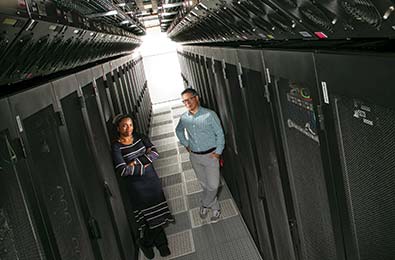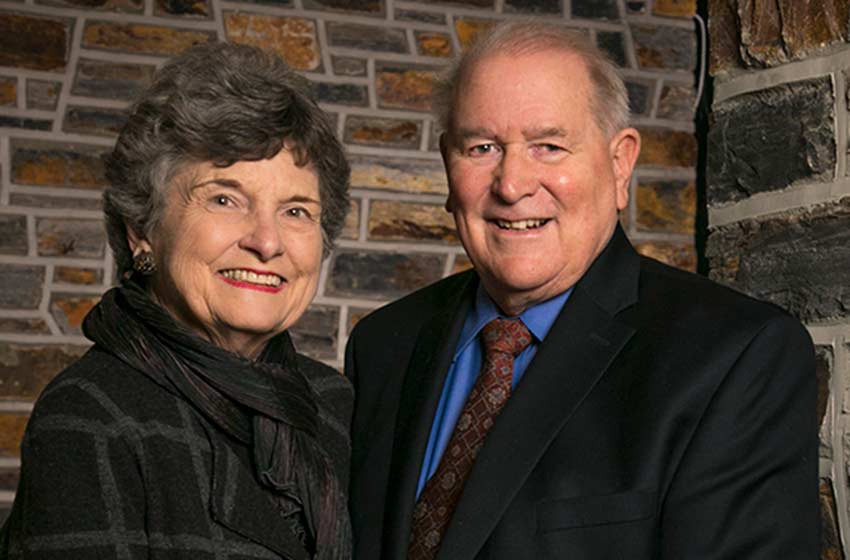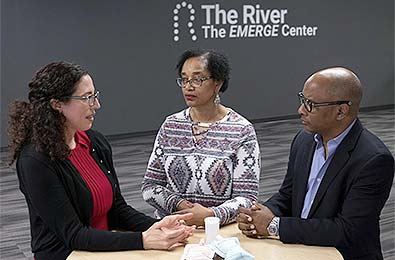
A team led by Manesh Patel, MD, chief of the Division of Cardiology and co-director of Duke Heart, is creating computer algorithms that can analyze angiogram images in real time to identify significant blockages and abnormalities and help guide treatment decisions.

National cancer databases provide a ton of valuable information for researchers, but institutional data is often more granular, including details such as specific chemotherapy regimens, radiation doses, treatment durations, and recurrence rates. The Duke Breast Database (DB2), a big data initiative, is invaluable for health researchers like Oluwadamilola “Lola” Fayanju, MD, assistant professor of surgery and the principal investigator for the database.

With sepsis, time is of the essence. Left untreated, the illness—a runaway immune response to infection—can quickly become life-threatening. Duke hospital medicine physician Cara O’Brien, MD, is partnering with the Duke Institute for Health Innovation to lead a multidisciplinary team of physicians, nurses, and biostatisticians that is using data science to rapidly identify at-risk patients, speed treatment, and improve outcomes.

'Big Data' is transforming medicine, and Duke is at the forefront

Most studies of new treatments don't reflect the diversity of people in the real world. That's a problem.

Lucey, a clinical professor emeritus of urology at the University of North Carolina at Chapel Hill, has a long-term commitment to giving back and serving others.
